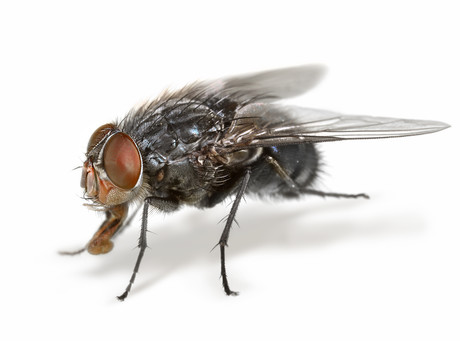Campylobacter rates forecast to double

Climate change could result in the rates of Campylobacter caused food poisoning doubling by 2080.
Although Campylobacter is one of the leading causes of foodborne illness worldwide it is not well understood. Its transmission is complicated and involved multiple hosts and reservoirs but one hypothesis is that house flies move the bacteria between reservoirs and humans.
Researchers at the University of Guelph used an infectious disease transmission model which describes Campylobacter dynamics in Ontario to project how disease dynamics may change due to increased fly activity and fly population sizes in climate change scenarios.
Fly populations flourish in summer and with climate change, fly populations are likely to grow as the environment warms.
After modelling fly population sizes under different climate change scenarios the researchers found that when fly numbers were increased by a quarter, there could be an accompanying 30% increase in food poisoning cases caused by Campylobacter. This model predicted that human disease may more than double by 2080 in this scenario.
The research funded by the Canadian Institute of Health Research, Ontario Veterinary College scholarship and Canadian Research Chairs Program has been published in Royal Society Open Science.
Refrigerant guide for heat pump selection
The Australian Alliance for Energy Productivity has developed a refrigerant guide for heat pumps...
Call for comment on use of a nutritive substance in infant formula
Food Standards Australia New Zealand (FSANZ) is calling for comment on an application to permit...
GM-sourced processing aid for brewed beverages, call for comment
Food Standards Australia New Zealand (FSANZ) is calling for comment on a GM-sourced processing...











